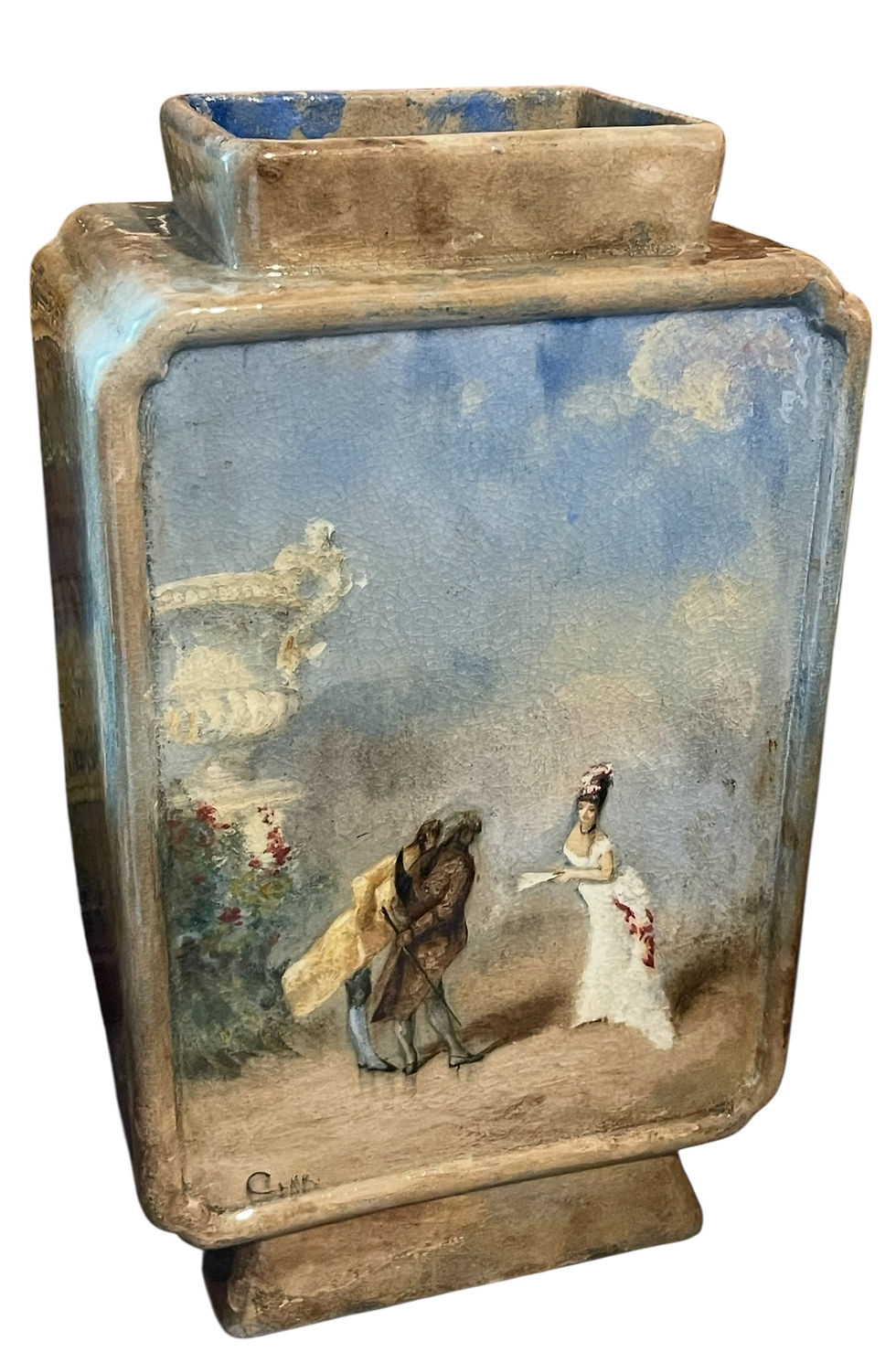The Appraiser's Archive: How the One Big Beautiful Bill Act Impacts Your Personal Property
- Danny Triplett
- Jul 25, 2025
- 3 min read
Updated: Jan 28

In today's edition of The Appraiser's Archive, we spotlight an antique French oil painting, explore the connection between provenance and value, and unpack how the One Big Beautiful Bill Act makes qualified personal property appraisals more important than ever.
PERSONAL PROPERTY SPOTLIGHT

Last year, we had the privilege of conducting an estate tax appraisal for the contents of a Florida estate. One of the items was an antique oil painting by Edouard-Leon Cortes (French, 1882-1969), "Place de la Republique,” valued at over $45,000.
French artist Edouard-Leon Cortes was known for his impressionist oil paintings of Paris, featuring romantic scenes often on city streets. This particular painting depicts pedestrians strolling on the boulevard on a rainy evening. Cortes painted many scenes on this same street, at various times of day, capturing the feel of the city against each look of the sky.
Do you or a client have a valuable item you want to sell but don't know where to start?
UNLOCKING VALUE: INDUSTRY INSIGHTS
In the world of personal property and appraisals, many factors contribute to an item’s value: its maker, condition, age, composition, and rarity. Gold is inherently valuable because of its rarity, and Meissen porcelain is valuable because it's Meissen. But few things can elevate an item’s value like provenance, which is the documented history of ownership. A recent Intelligent Collector feature explores how provenance has evolved from a helpful footnote to a central force shaping buyer behavior, particularly as baby boomer wealth is transferring to heirs: “The new generation of collectors sees cultural impact and personal nostalgia as driving forces.”
The proof is in the hammer prices. Just this month, the iconic “Rosebud” sled from Citizen Kane, previously owned by Gremlins director Joe Dante, brought in a staggering $14.75 million. The same goes for a recent Beverly Hills auction where personal items from Princess Diana raised $5 million, with bidders responding to both the intimate nature of the items and their well-recorded royal origins. And the late Jane Birkin’s personal Hermès handbag, the first of its kind and the blueprint for the now-iconic accessory, brought in $10.1 million because of its connection to the woman who inspired it.
With over fifteen years in the personal property industry, we know firsthand that the value of an item is often in its story, history, and how we personally resonate with its place in popular culture.
THE PROFESSIONAL'S CORNER
You’ve almost certainly seen the estate and wealth planning headlines coming out of the recently enacted One Big Beautiful Bill Act (OBBBA) and its permanent $15 million estate and gift tax exemption. Trusts, securities, and cash are taking center stage in conversations.
But what does it mean for your client’s tangible property, such as fine art or valuable collections?

For high-net-worth individuals, the new exemption offers a larger window of opportunity to transfer significant personal assets such as art, antiques, and collections without triggering federal estate or gift taxes. But with opportunity comes an even greater need to defend property valuations.
The bill preserves the step-up in basis rules, meaning that inherited assets will still receive a new fair market value basis at death. This reinforces the importance of accurate and defensible personal property appraisals at the time of estate settlement.
For clients considering lifetime gifts of collectibles, fine art, or other valuable tangible assets, obtaining an early and qualified personal property appraisal is key to a smooth and tax-efficient transfer. Because gifted property retains the donor’s original cost basis (unlike inherited property that receives a step-up in basis), an accurate appraisal helps reveal potential capital gains exposure for the recipient. It also ensures compliance with IRS reporting requirements, particularly when gifts exceed the annual exclusion or are donated to charitable organizations.
Appraisals can offer strategic insight as IRS scrutiny of non-cash gifts increases and collector markets continue to show unpredictable and significant appreciation. Whether the goal is to leverage the expanded gift exemption, support a charitable deduction, or plan around future sale or estate considerations, appraisals help transform valuable objects into well-managed assets within a broader estate plan.
Subscribe to unlock expert personal property insights, unique appraisal spotlights, and more. Lands in your inbox every other Friday.


